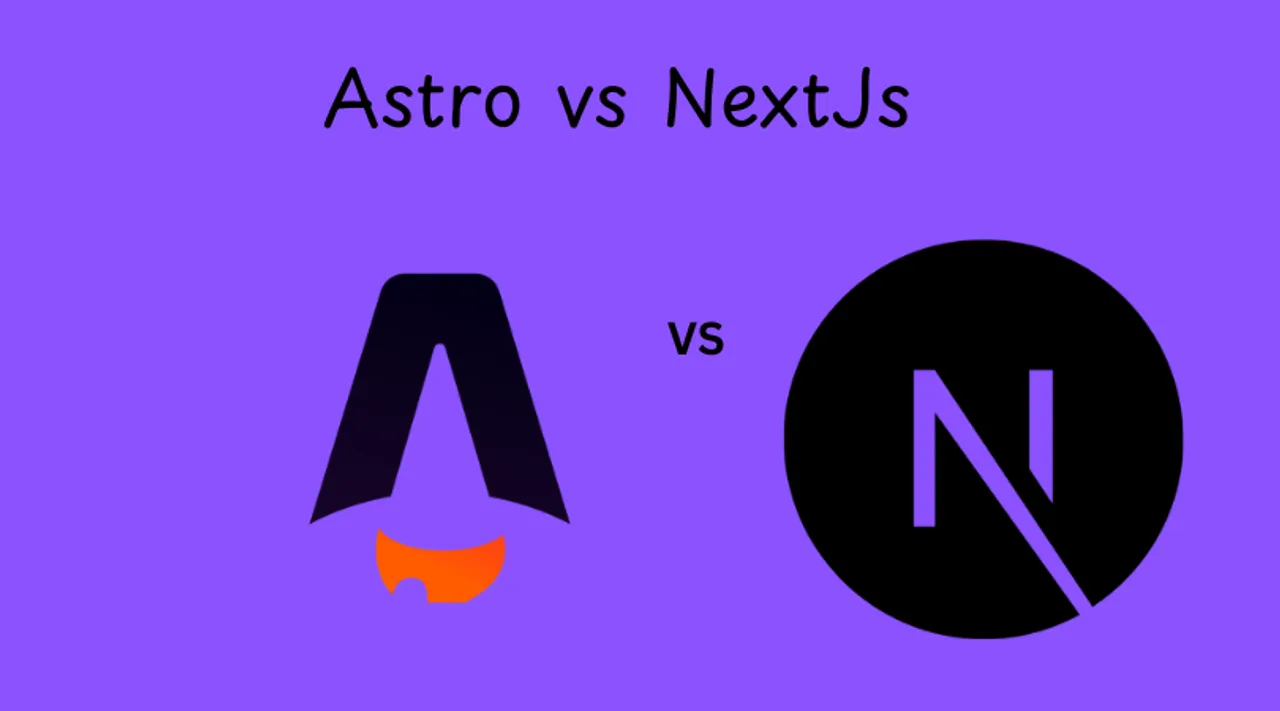Astro JS vs Next.js: Choosing the Right Framework for Your Project
A comprehensive comparison between Astro JS and Next.js to help you determine the best framework for your web development needs.

In the ever-evolving landscape of web development, choosing the right framework can significantly impact your project’s success. Two prominent contenders in this space are Astro JS and Next.js. Both offer unique features and cater to different project requirements. This article delves into their core differences, strengths, and ideal use cases to guide you in making an informed decision.
Understanding Astro
Astro is a modern static site builder which excels at building content-heavy websites. Astro emphasizes on delivering minimal JavaScript to the client, ensuring faster load times. Key features include:
-
Framework Agnostic: Astro allows developers to integrate with various UI frameworks like React, Vue, and Svelte within the same project.
-
Server-first: Astro handles expensive javascript rendering on the server side, reducing the overall bundle size.
-
Zero-JavaScript by Default: Prioritizes static content, making it ideal for content-heavy sites.
Understanding Next.js
Next.js is a React-based framework known for its versatility in building both static and dynamic web applications. Its notable features include:
-
Hybrid Rendering: Supports Static Site Generation (SSG), Server-Side Rendering (SSR), and Incremental Static Regeneration (ISR), offering flexibility based on project needs.
-
API Routes: Facilitates the creation of backend endpoints within the application, streamlining the development process.
-
Rich Ecosystem: Benefits from React’s extensive community and a plethora of plugins and integrations.
Performance Comparison
When it comes to performance:
-
Astro JS focuses on delivering minimal JavaScript, leading to faster load times, especially for static websites.
-
Next.js includes JavaScript on every page but optimizes performance with features like automatic code splitting.
Developer Experience
Both frameworks aim to enhance developer experience:
-
Astro JS offers flexibility by allowing the use of multiple UI frameworks within a single project.
-
Next.js provides a seamless experience for React developers, leveraging React’s ecosystem to the fullest.
SEO and Core Web Vitals
Both frameworks are designed with SEO in mind:
-
Astro JS Astro sites or web apps have very fast load times and use minimal JavaScript, which positively impact Core Web Vitals.
-
Next.js Next js also offers features like image optimization and automatic code splitting to enhance performance and SEO.
Ecosystem and Community Support
-
Astro JS Compared to Next js, Astro is relatively new but developers are starting to love it, because of the flexibility with its framework-agnostic approach. Astrojs has been adopted by companies like Netlify, Porsche, Firebase, and so on.
-
Next.js Next js on the othe hand is a mature framework with a large community making it easier to get help from fellow developers. Also, Nextjs is widely adopted by large companies like OpenAI, Hulu,Tiktok, and Vimeo.
When to Use Astro JS vs Next.js
-
Astro JS: Astro is an ideal framework for content-heavy sites, marketing pages, and businesses who want high SEO and faster load times.
-
Next.js: Next js is also for versatile, scalable applications with both static and dynamic content, especially where server-side rendering and API integrations are essential.
Conclusion
Choosing between Astro JS and Next.js depends on your project’s specific needs. If your focus is on delivering static content with minimal JavaScript for optimal performance, Astro JS is a compelling choice. Conversely, if you’re building a dynamic application that leverages React’s capabilities, Next.js offers a robust solution. Always choose the framework that works best for your project. Thanks.
Related Posts

How To Build A Simple Dashboard Using React And Tailwind CSS
A simple tutorial to teach ypu how to build a simple Sidebar menu using React, React Router, and Tailwind CSS.

Next.js Explained: What It is Used For, Frontend or Backend, and How It Compares to React And Angular
Explore how Next.js is used to build full-stack web applications using the new App Router, and learn whether it’s better than plain React or Angular.

Navigating Your Web Development Career Path: A Roadmap for Success
Explore different career paths in web development, from frontend and backend to full-stack, and learn how to build a successful career in tech.